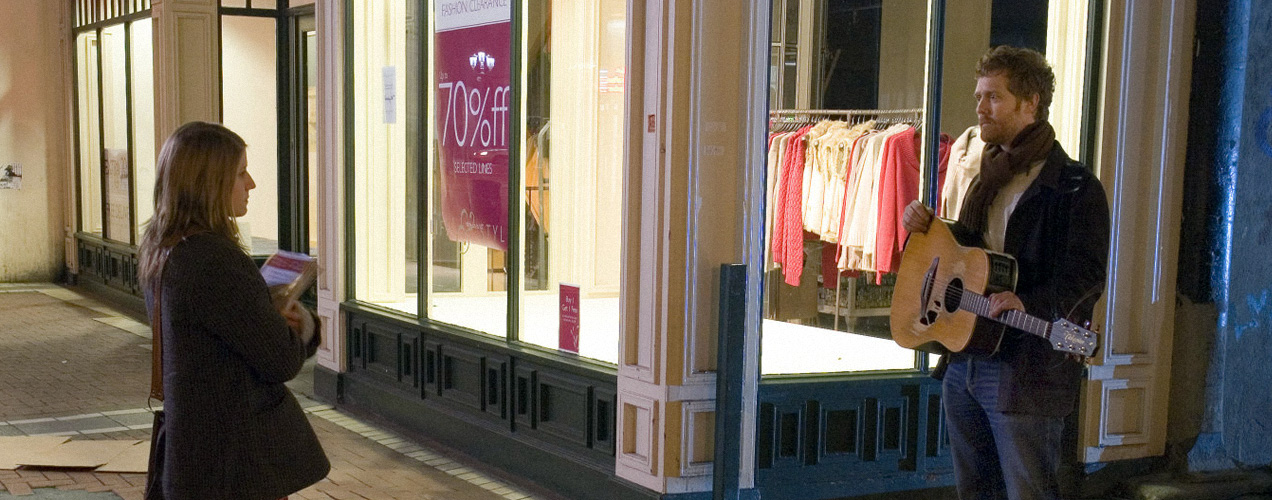2007 / John Carney > It’s nearly impossible not to like Once, but mileage will vary in how much it’ll be appreciated. As a musical, it works on levels not typical in film: The honest folk/rock of star Glen Hansard is always heartfelt, always fresh. It lacks the silly glamour that tends to persist in the genre and instead fills it with the kind of realism that many can identify with. Carney takes into account the awkwardness of loneliness and spins it into a sort of underhanded morality tale about where love ends and begins. It is, however, a little esoteric in its approach and fails to give me the kind of foothold I was looking for. Either way, the chemistry between Hansard and Marketa Irglova is so natural and charming, it becomes an easy watch.
Category Archives: Europe

Persepolis
2007 / Vincent Paronnaud & Marjane Satrapi > Part-history lesson, part-coming of age, Persepolis is a fresh and exciting cinematic event for the masses. What becomes problematic, however, is the idea that Satrapi’s journey is neither unique nor over. At the conclusion, there’s a nagging feeling that there must be more than this, yet we are forced to walk away. The film’s most important contribution, ironically, becomes its brief history of Iran, an often misunderstood nation whose political ties have been close to the Western world since the discovery of oil. The parts of the film where Satrapi is in Iran are countlessly more interesting than when she’s in Vienna, diddling away into an awkwardly written episode of Felicity. Still, the whole show is a nice change of pace in a year of weak independent filmmaking.
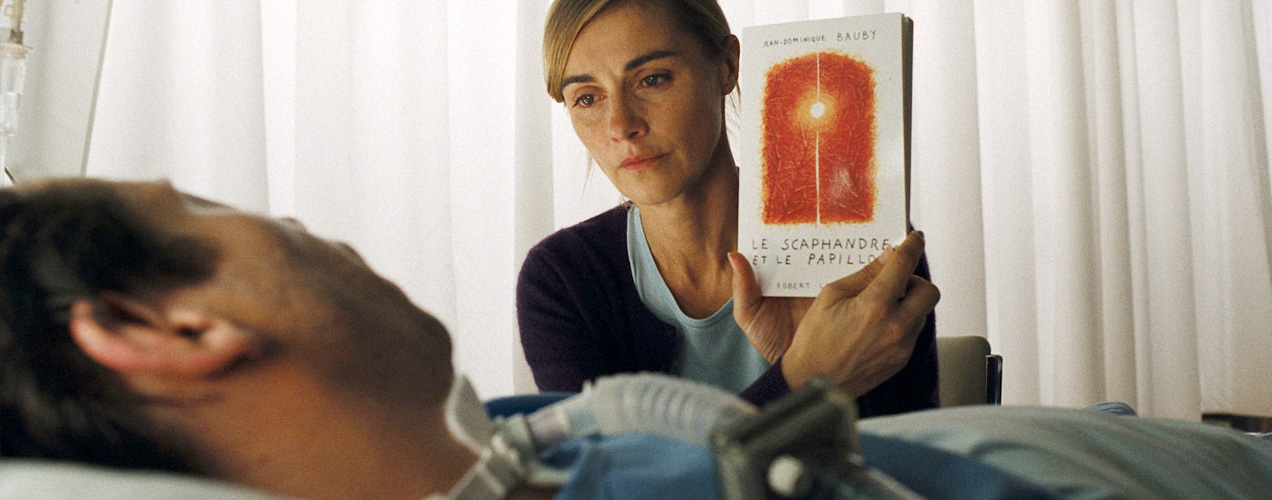
The Diving Bell and the Butterfly
2007 / Julian Schnabel > When I first heard this was going to be made into a film, I was filled with both worry and wonder. A film about a man who communicates by blinking? How interesting could that be on the screen? In amazement and awe, however, Schnabel and cinematographer Janusz Kaminski (who ought to be a lock for an Oscar nod) have adapted The Diving Bell and the Butterfly into celluloid with a level of imagination that even Jean-Dominique Bauby may not have had in his writing process. The scenes where Bauby (played immaculately by Mathieu Amalric) and his father (played by an appropriately aging Max von Sydow) communicate before and after the stroke are mesmerizing and heartbreaking. All the women in the film shine in reflection to Bauby’s “butterfly,” each adding an extra layer of emotion and character to a life not to be pitied. No doubt one of the year’s very best, the film is an epic of human creativity and strength.
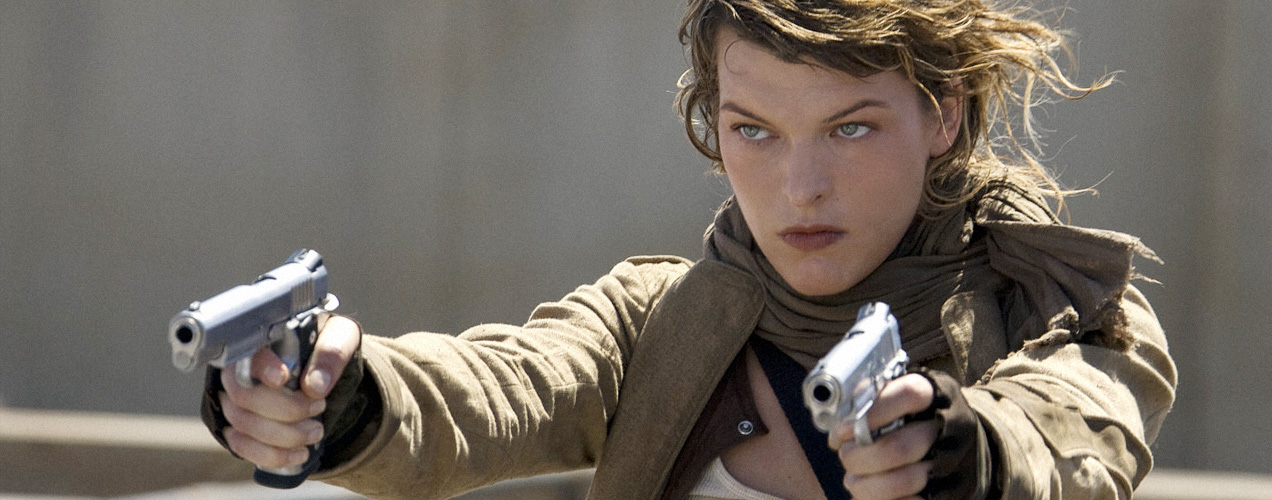
Resident Evil: Extinction
2007 / Russell Mulcahy > The worst thing a Resident Evil-like movie can be is boring. And this one is boring. It’s not really exciting. Nothing really happens. Okay, some things happen but they’re mostly boring. So, nothing might as well happen at all. Though, Milla Jovovich sure can kick some ass. And there are a few explosions to wake you up.
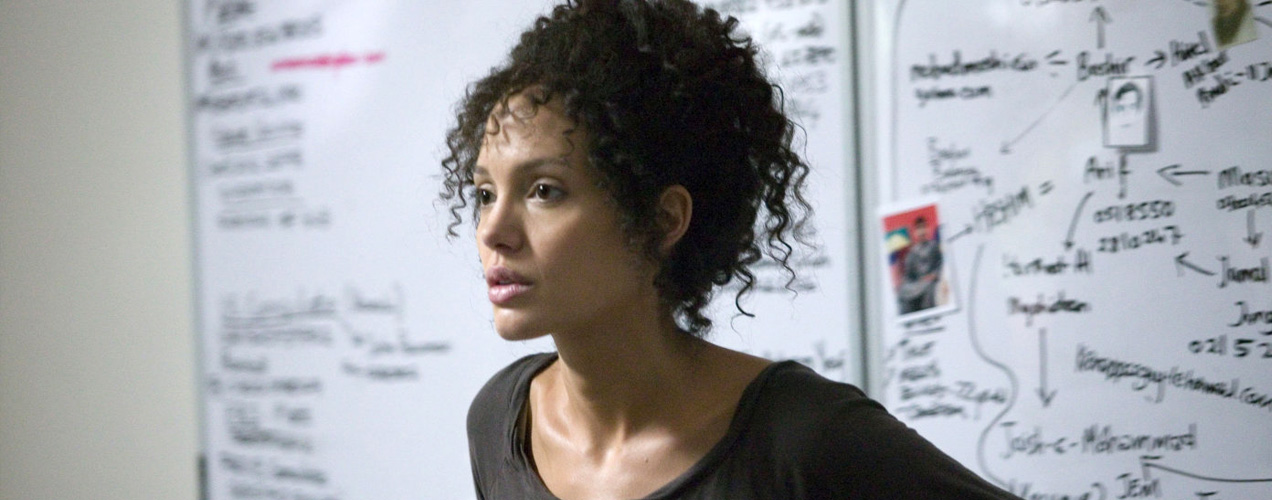
A Mighty Heart
2007 / Michael Winterbottom > There are two significant breakthroughs in A Mighty Heart: We learn that it is possible for Winterbottom to produce an apolitical film. Unlike The Road to Guantanamo, which plays the West as the villain from the get go, the film doesn’t utilize the people in the story to prove anything—As a bastard child of 9/11, A Mighty Heart rivals only Reign on Me in its appreciation of the event’s after-effects from a non-agenda viewpoint. It is tactful and intelligent, though not necessarily forgiving or hopeful of the strife and confusion that surrounds our current society.
We also get to enjoy Angelina Jolie in a role that brings her back down to earth, finds us focusing on her character and not the Hollywood megastar that she is. This is a joint accomplishment on both Winterbottom and Jolie’s part that I find impressive, to take the celebrity out of a film and put in its place the strong-willed but broken hearted Marianne Pearl. Combined with an always impressive Irfan Khan, the cast of both professional and non-professional actors deliver an emotionally engrossing picture not to be taken lightly.
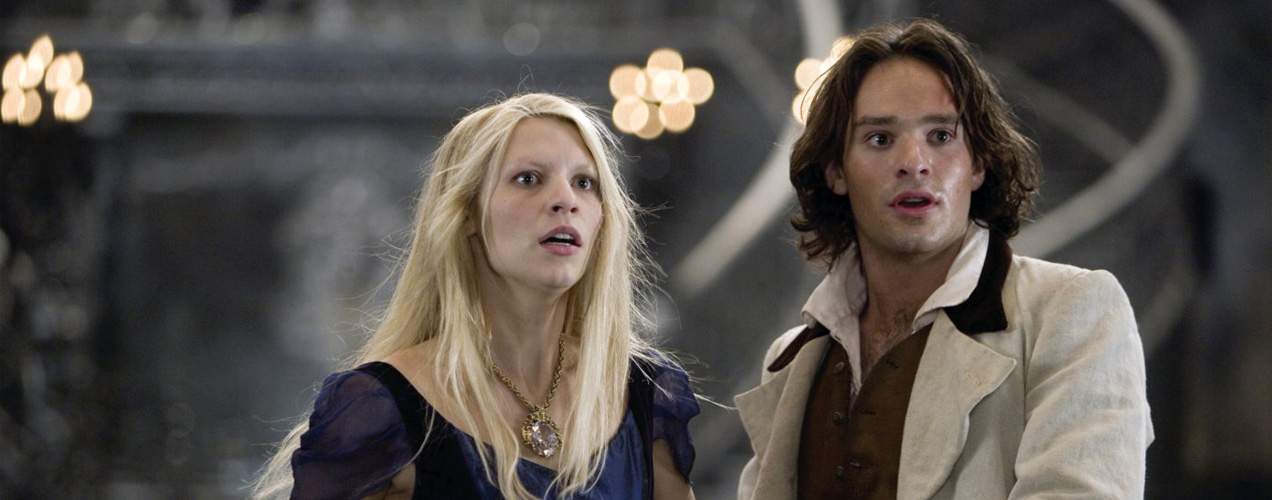
Stardust
2007 / Matthew Vaughn > On the back of the success of Layer Cake, Vaughn’s decision to take upon a tale of such fantastic proportions is both admirable and a little suspect. Gone are the calculated plotlines that made his previous venture such a joy to watch, and in their place is a messy, underachieving fantasy that’s all gloss.
The film starts strong by setting up a potentially epic story of lost love and the search for the rightful ruler of a mystical kingdom, but then succumbs halfway to a mildly droning last hour where it becomes predictable and often just downright silly. In fact, most of De Niro’s character is a distraction and seems as if he’s given more screentime because of his big name. Claire Daines is lifeless as usual—hasn’t anyone figured out that the reason she was so good in My So-Called Life was because her character was supposed to be lifeless? Throw in another pointless cameo by Ricky Gervais, and we have the recipe for a bloated project that nearly crumbles on its own weight. There was enough here to enjoy (especially some of the campy jokes), but what could have been a memorable experience instead remains something momentary.

Trade
2007 / Marco Kreuzpaintner > Trade may just be this year’s biggest missed opportunity, overshooting any chance of credibility with its amateur, aggrandized screenplay. Because the subject of sex trafficking is misunderstood in both its scope and prevalence, Kreuzpaintner and screenwriter Jose Rivera’s attempt to bring it onto the mainstream is admirable, but ends up being frustrating in its execution. While the cinematography and score are superb, the writing that surrounds it is vapid and cliche. (This worries me terribly since Rivera is in charge of scripting the American remake of the superb Korean drama Failan.) The excess in the storytelling particularly disappoints, taking away the focus from the true horror of the industry while emphasizing the superfluous. Ultimately, I wanted to like it but couldn’t; I found myself too angry at its silliness and disrespect for the subject matter.

Eastern Promises
2007 / David Cronenberg > If there’s one thing that Cronenberg’s always done and deserves the most praise for, it’s the respect and intelligence with which he treats his audience. Hints are dropped, arcs are drawn but most of the dots are ultimately connected by the viewer. More often than not, this technique works wonders (e.g., Crash and eXistenZ). In Eastern Promises, this technique is further refined to the point where it actually backfires a little: Considering the strength of Viggo Mortensen’s character and the underlying tension/mystery that develops throughout, the finale is anticlimactic and disappointingly flaccid. The credits brought forth no emotions in me, a fact I found disheartening after 100 minutes of stellar filmmaking. In The History of Violence, there was an emotional purge at the end that left me at peace, but here that was absent. It’s simply too clever, and I can only wish that he had added a few more minutes to extrapolate the ongoings—not for the purposes of holding my hand, but in order to find a foundation to rest the violence and stereotypes by which the film operates.

Tell No One
2006 / Guillaume Canet > Gripping from the get go, the manner in which Tell No One unravels is both exhausting and exciting. Canet’s complex plotline is a gem that’s further enhanced by a simply terrific performance from Francois Cluzet, stunning, ambient cinematography and the inclusion of sporadic English music that adds to the mood while seamlessly fitting into the French setting. In short, it remains the type of murder mystery/thriller that we’ve seen again and again, but the veil on it is so thick with heart and intensity that we forget about past experiences and get sucked in without fail.
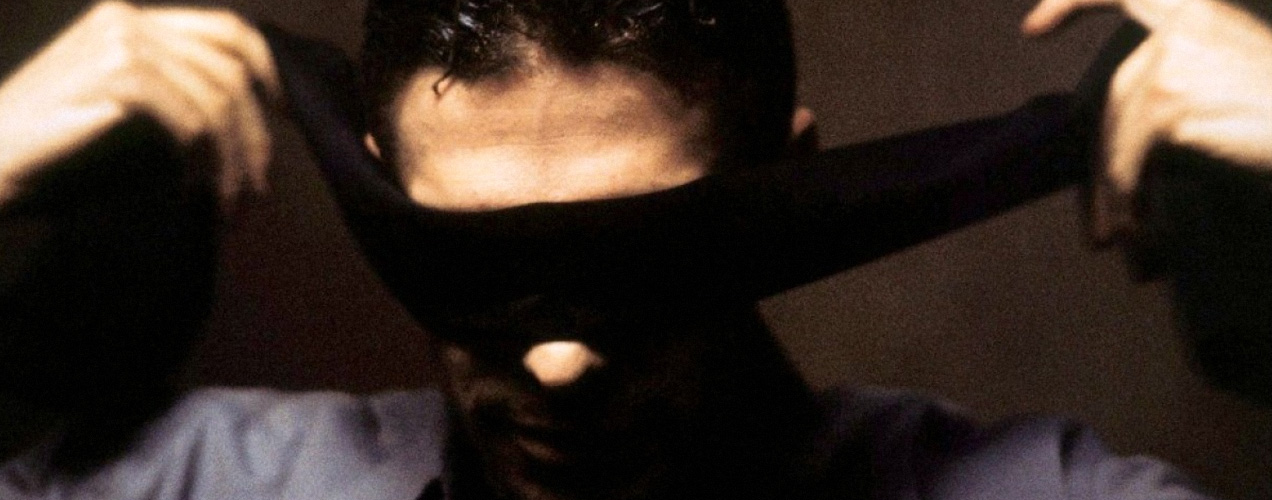
Intacto
2001 / Juan Carlos Fresnadillo > While luck transference is an interesting premise and the execution is sharp and solid, I found it hard to get over the film’s conclusion. Filled with Hollywood-style simplification, the ending spirals downward into something sentimental and unsatisfying—so very disappointing after Intacto showed such great promise and freshness with its darkly calculated, brooding style/mood.

